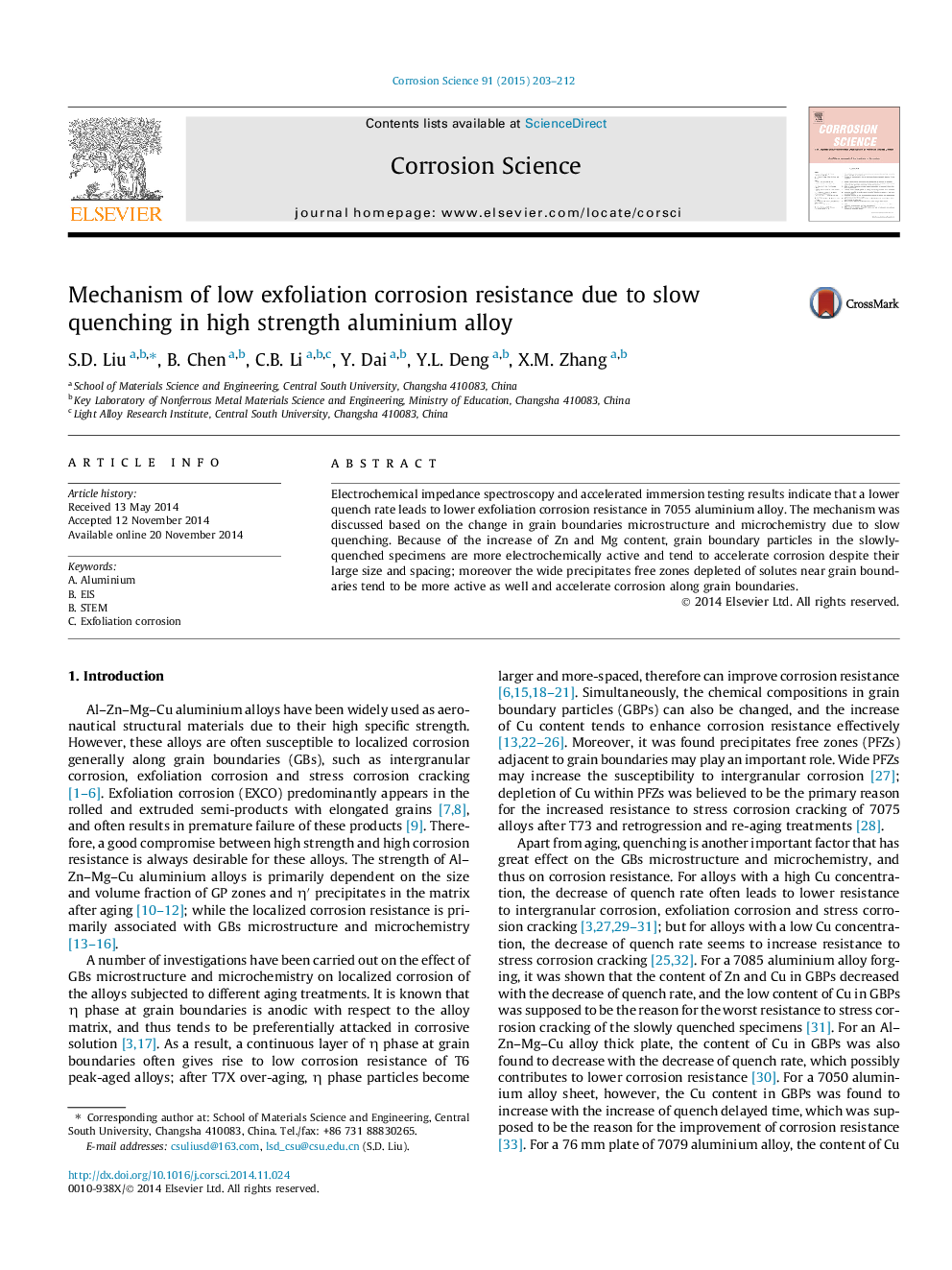| Article ID | Journal | Published Year | Pages | File Type |
|---|---|---|---|---|
| 1468534 | Corrosion Science | 2015 | 10 Pages |
•Exfoliation corrosion resistance of 7055 Al alloy is decreased by slow quenching.•Slow quenching increases the Zn, Mg and Cu content in grain boundary particles.•A higher content of Zn, Mg in grain boundary particles makes them more anodic.•Wide precipitates free zones near grain boundaries accelerate localized corrosion.
Electrochemical impedance spectroscopy and accelerated immersion testing results indicate that a lower quench rate leads to lower exfoliation corrosion resistance in 7055 aluminium alloy. The mechanism was discussed based on the change in grain boundaries microstructure and microchemistry due to slow quenching. Because of the increase of Zn and Mg content, grain boundary particles in the slowly-quenched specimens are more electrochemically active and tend to accelerate corrosion despite their large size and spacing; moreover the wide precipitates free zones depleted of solutes near grain boundaries tend to be more active as well and accelerate corrosion along grain boundaries.
